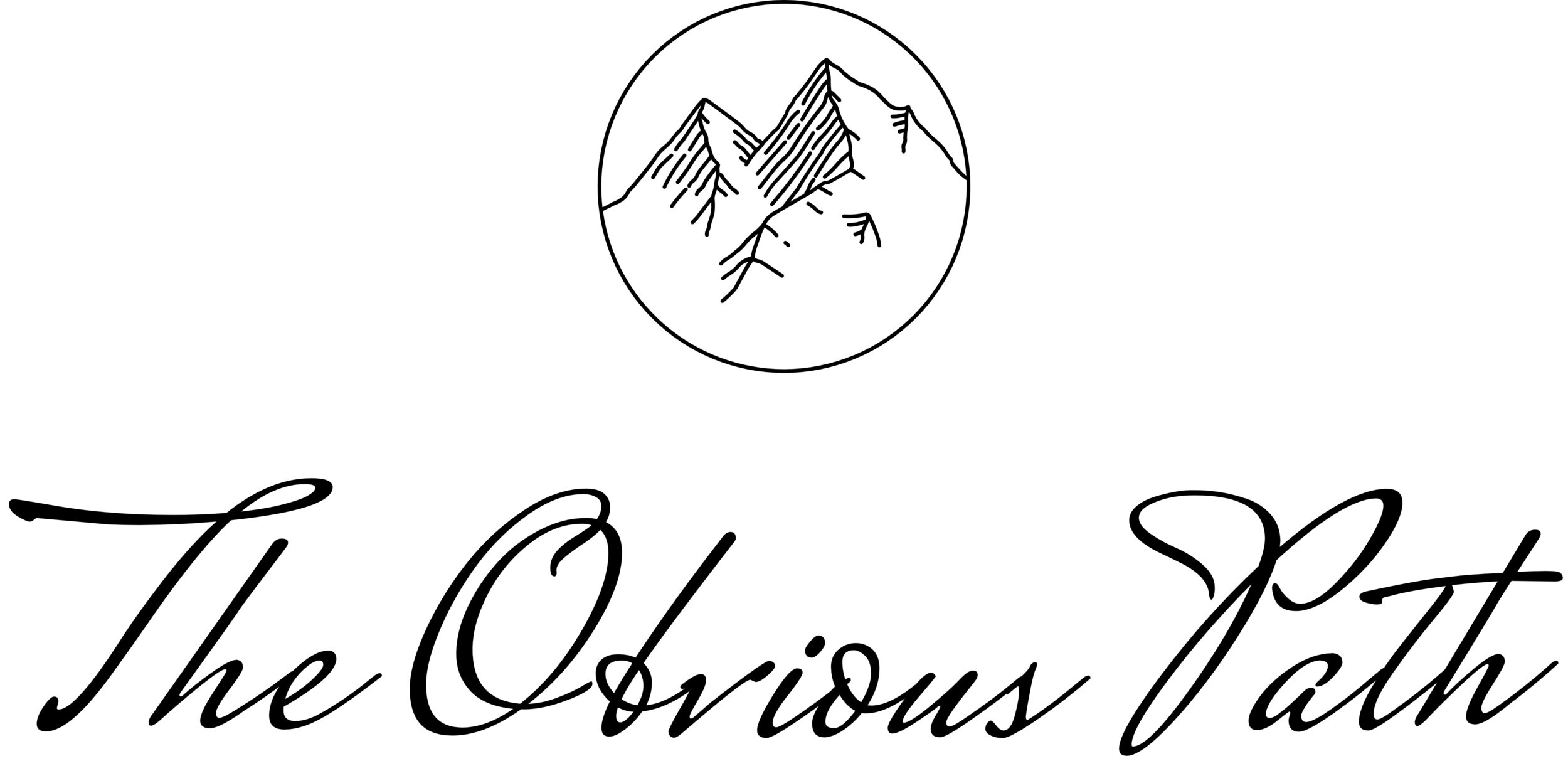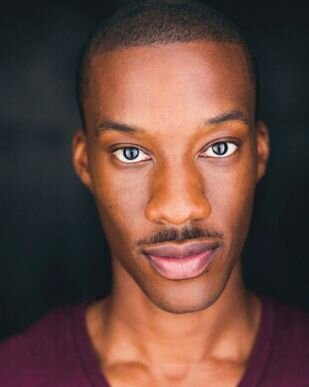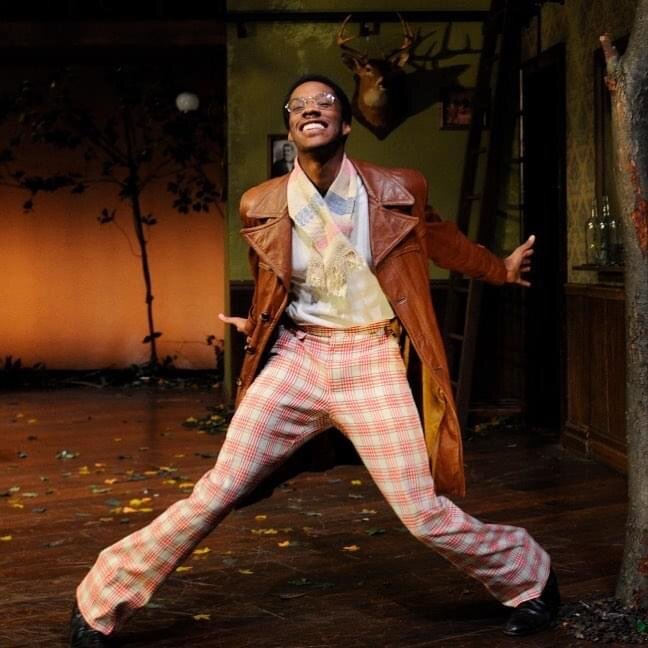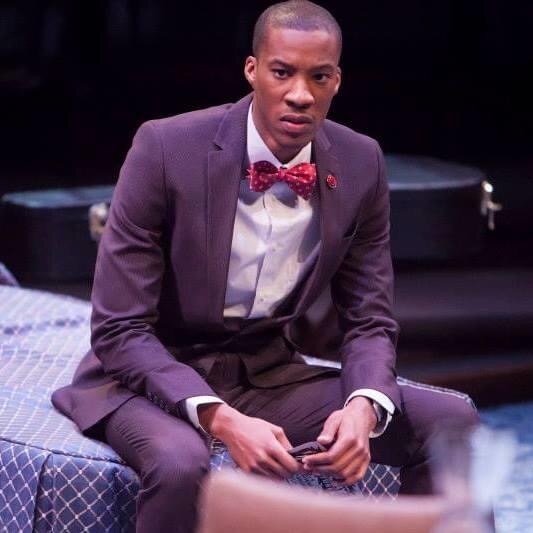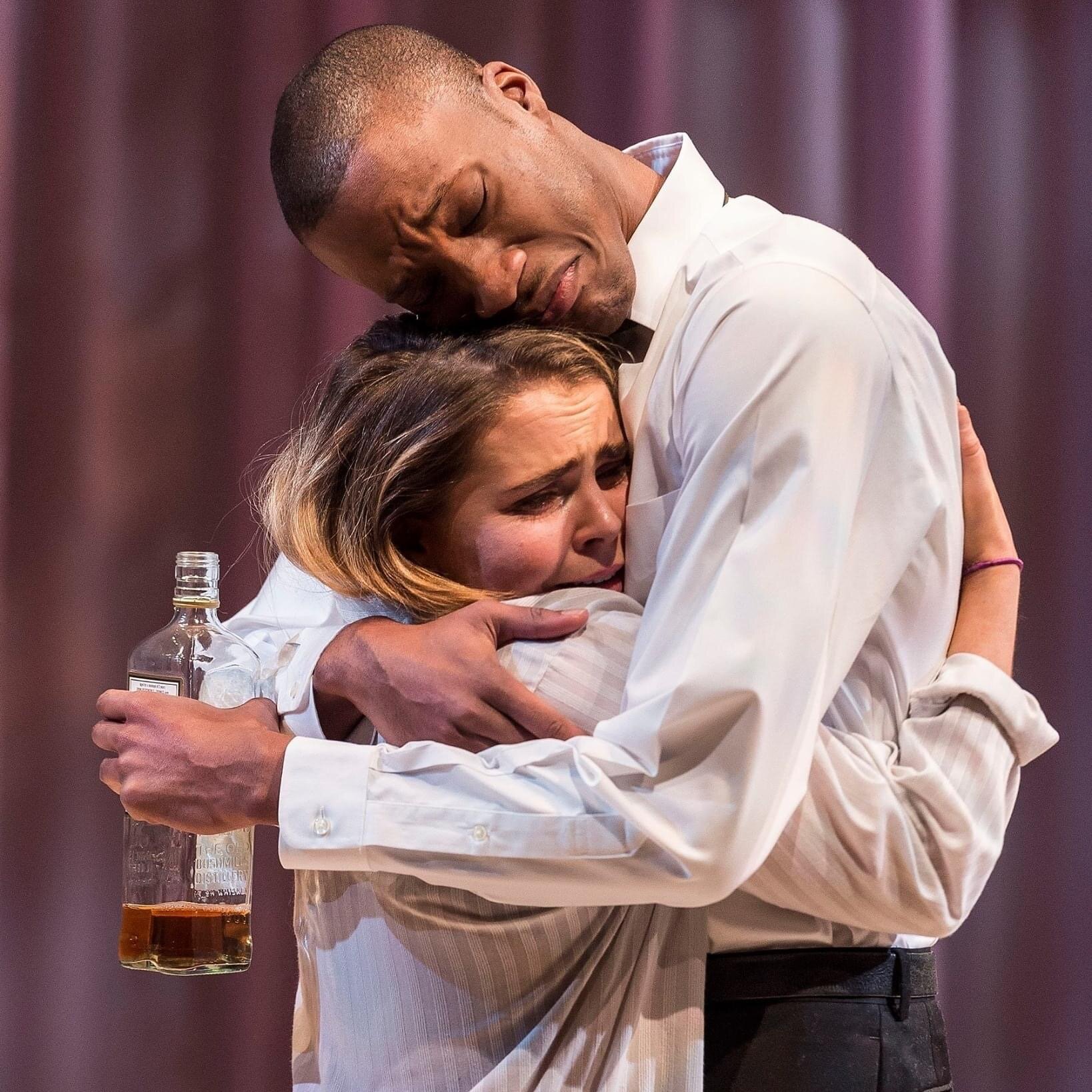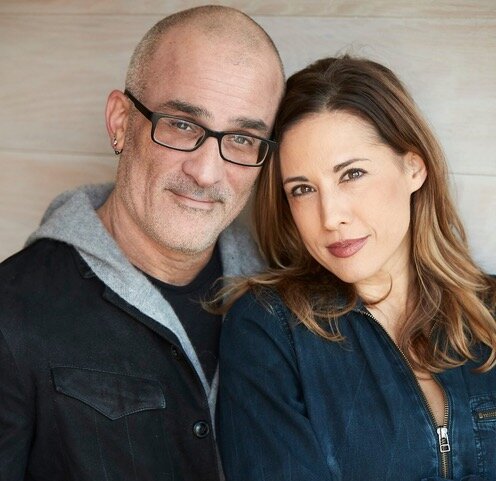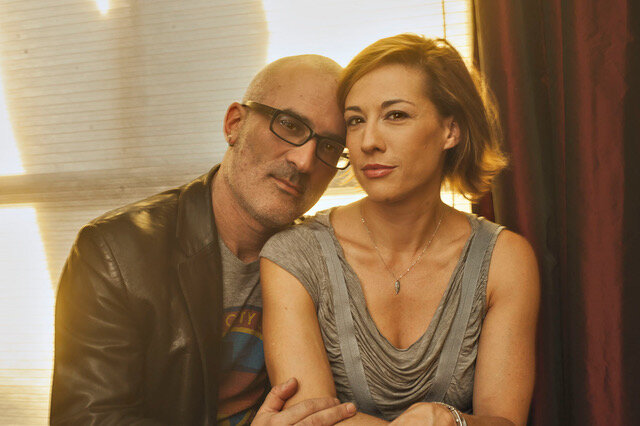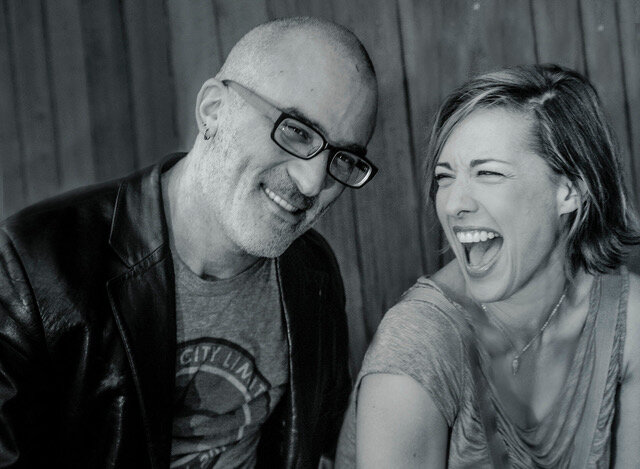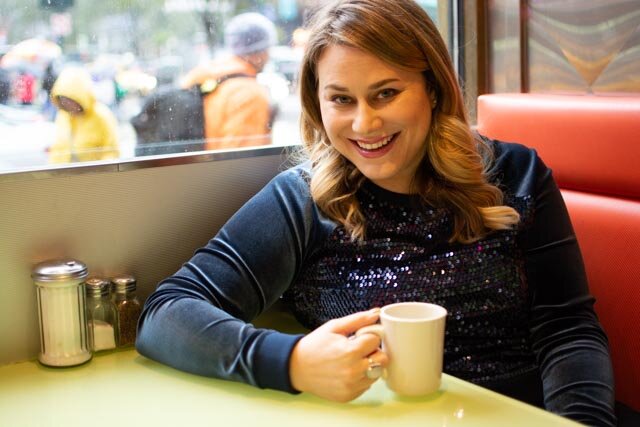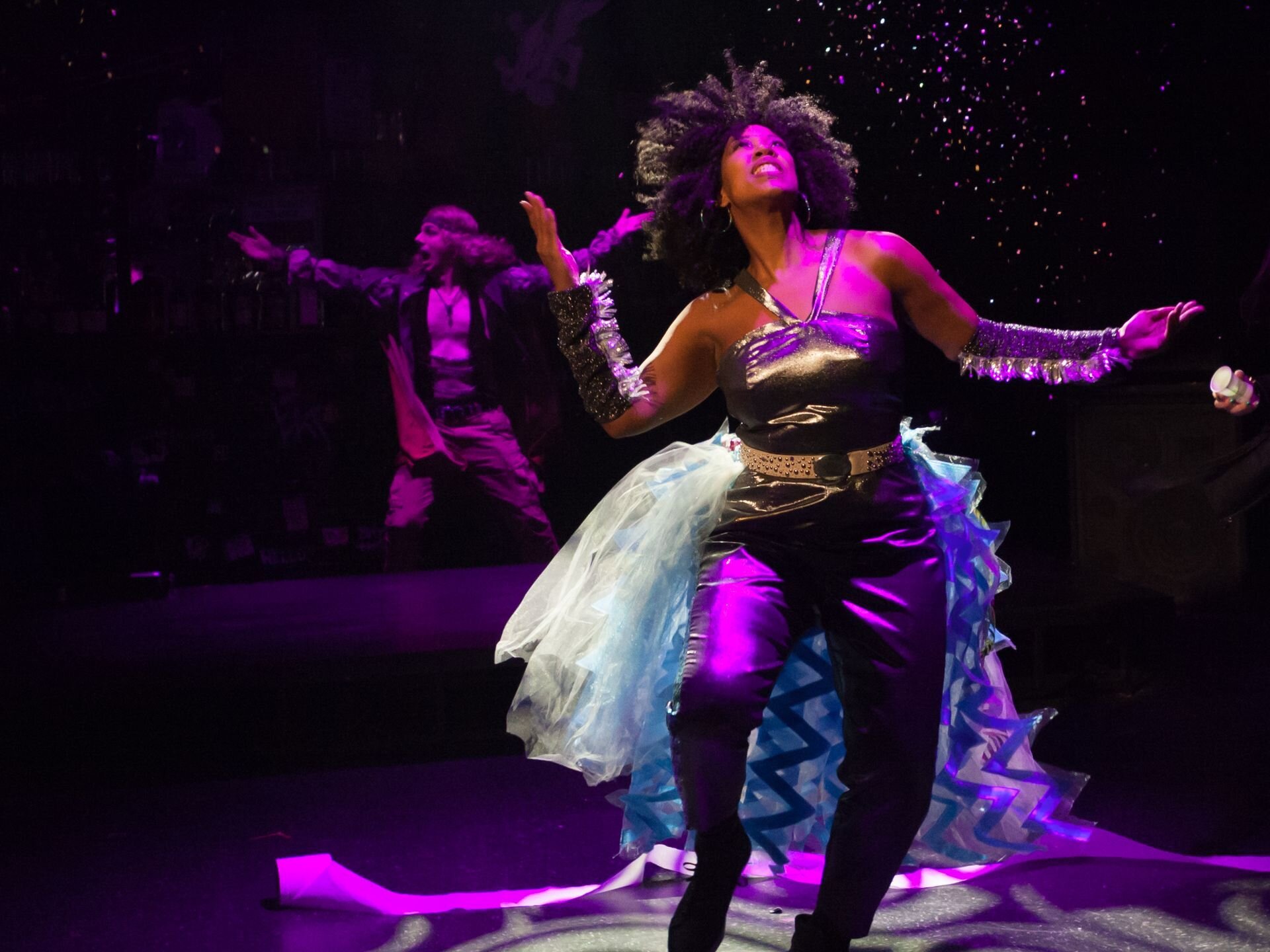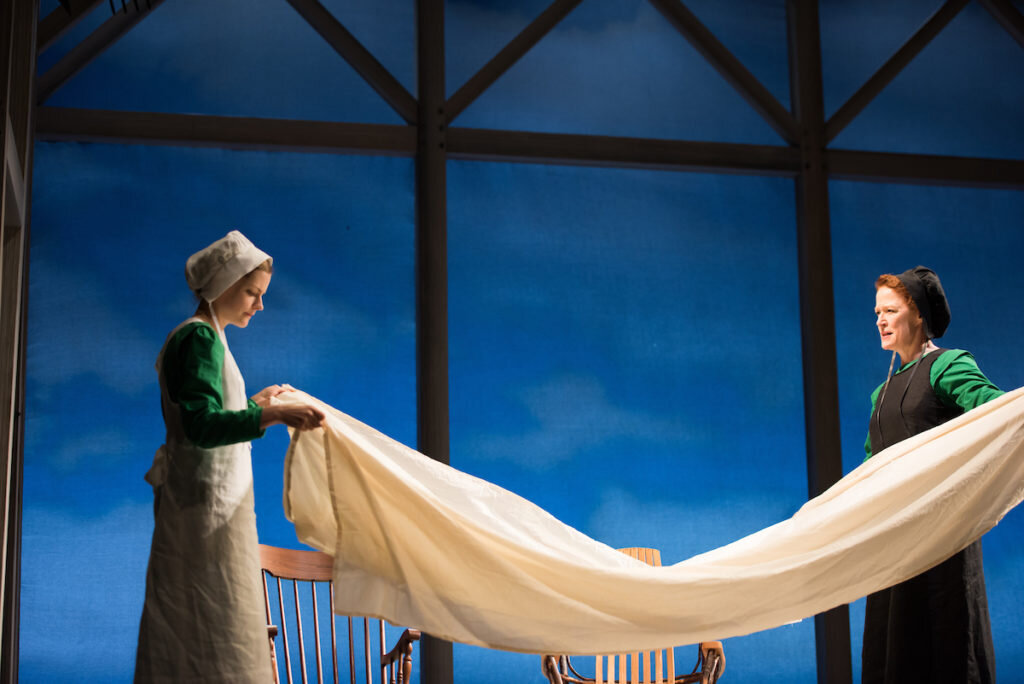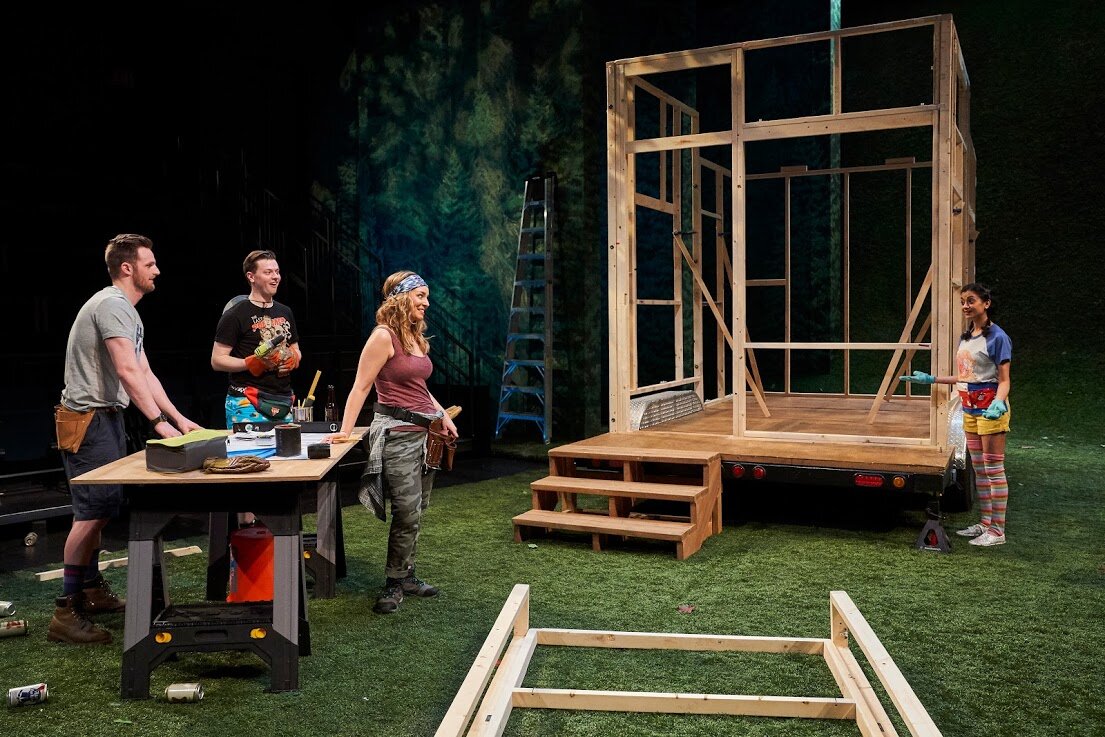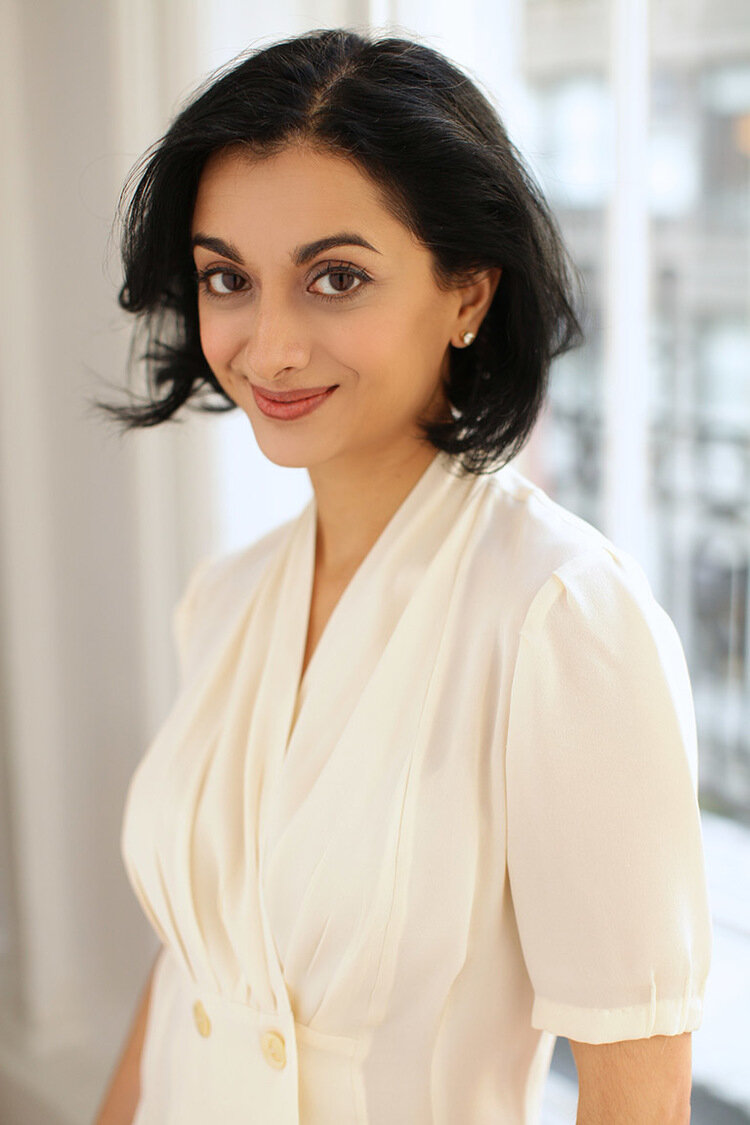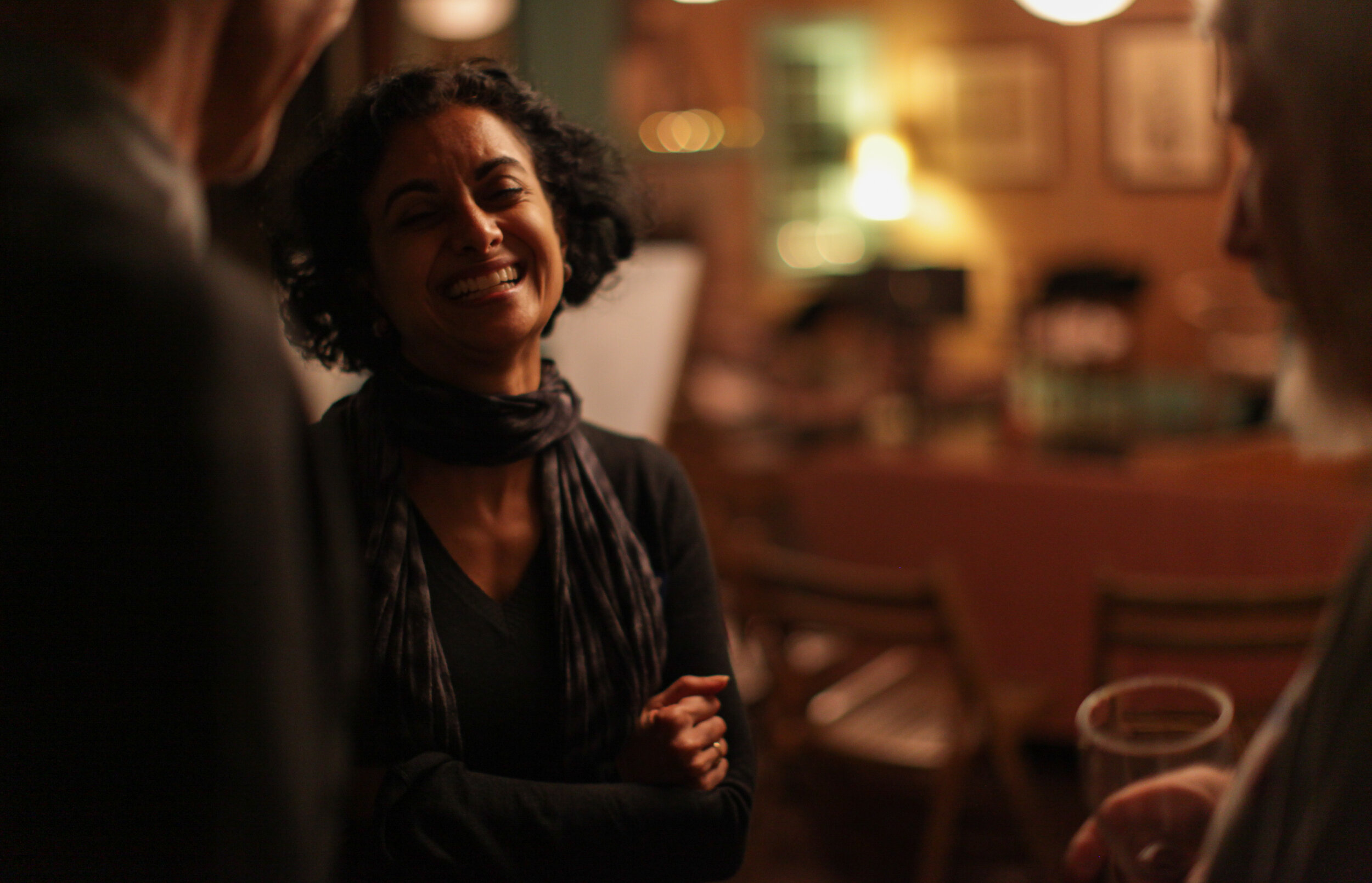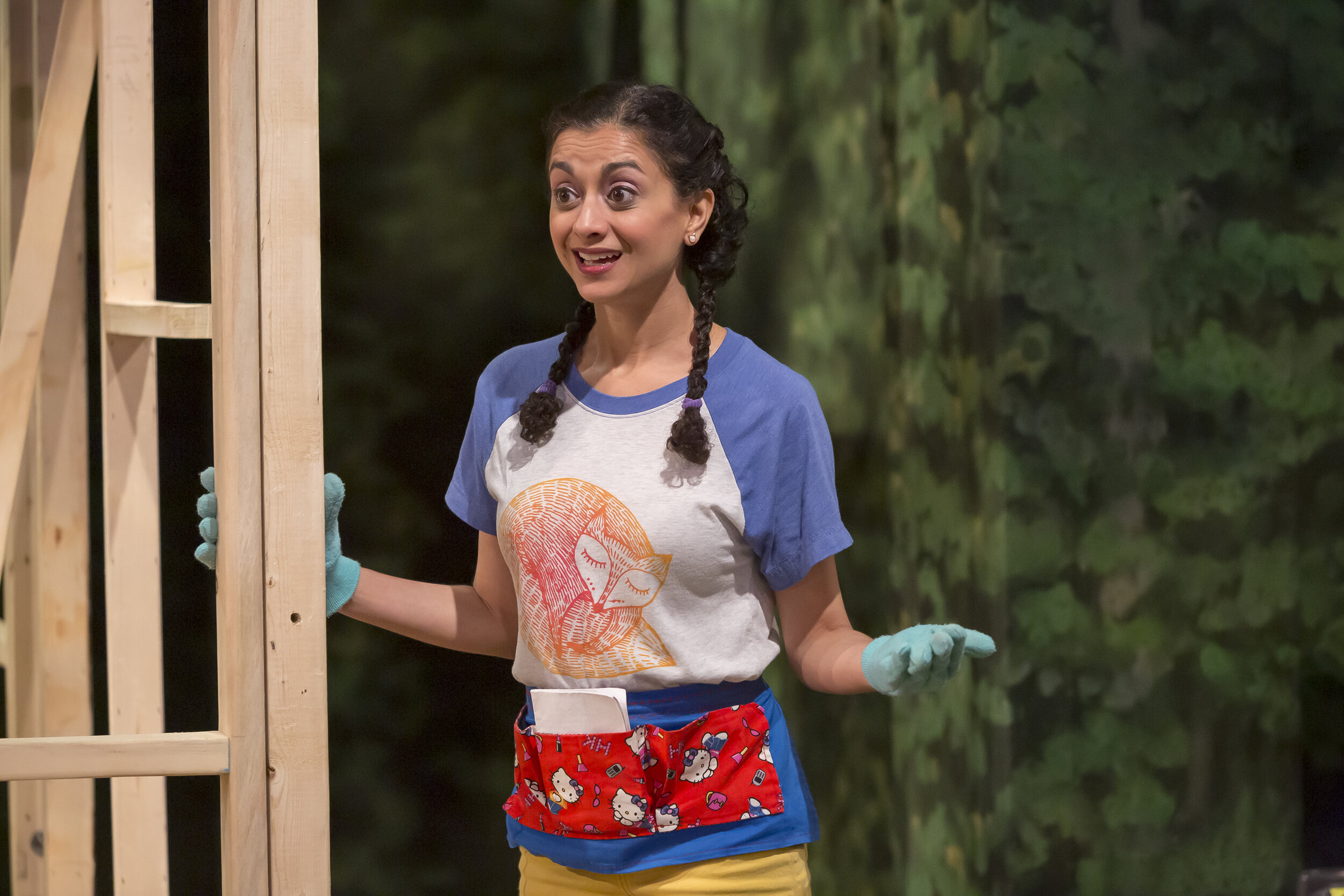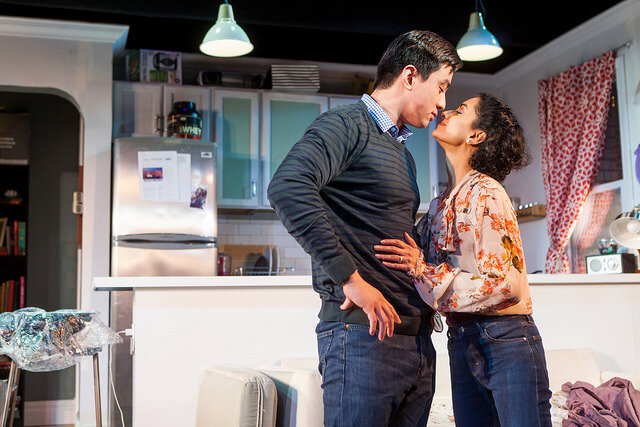From Peter: York Walker is one of those human beings you meet and are perpetually astounded by their depth. We were in A Christmas Carol at Actors Theatre of Louisville in 2018 where York was playing a phenomenal Bob Crachit. Four weeks into the run, we were invited to a reading of York’s play Summer of ‘63. We all knew York was a writer; he had mentioned working on his play throughout rehearsal. But, y’all… We didn’t know York was a writer. That afternoon play reading remains one of the most joyful, surprising, emotional, and ephemeral experiences of my life.
Since late 2018, York has been on a meteoric ascension. In many ways, his success right now feels like a fulfillment of his destiny. His story is perfect, however, for The Obvious Path. Multiple cross country moves, giving up a “death grip on acting”, and finding the stories that matter most to him. He’s beyond multi-faceted, deserving of everything good coming in his life, and one of the most genuinely wonderful people in our business. Enjoy the wisdom, humor, and vision York Walker has given us.
We’ll give you the latest facts on York Walker. He’s an accomplished actor with an MFA from A.C.T. He’s performed at the Mark Taper Forum, California Shakespeare Theatre, Actors Theatre of Louisville, Two River Theatre and more. As a playwright, he was listed in Playbill.com’s Volume II of ‘Queer Black Playwrights to know and support’, and is currently a member of Lena Waithe’s Hillman Grad Mentorship Program. Those things have come together as York was recently named the Inaugural Recipient of the Colman Domingo Award, an award bestowed annually to a Black male or male-identifying multi-faceted theatre artist to provide support for the creation of new work. York, we’re humbled and thankful for your time with us. Is there anything you’d like to introduce to our readers about your background, your life outside of theatre, or your work?
I think that it is important to state that I am a Beyoncé enthusiast. If you haven’t seen Black Is King yet on Disney + I highly suggest you watch immediately to receive your blessing.
With a B.A. in acting from Illinois State University, you began your career as an acting apprentice at Actors Theatre of Louisville. A year later, you went to get your MFA in Acting from the American Conservatory Theatre. Can you talk about the benefits or drawbacks of apprentice programs and elite MFA programs? How do you feel the time out in the “real world” before going back to school impacted your experience?
I would not be the artist I am today without the Actors Theatre Of Louisville Apprenticeship and ACT. The apprenticeship was an important step in my journey because it was one of the first moments when I realized that I could actually do this. I spent all of my time in college trying to prove to myself that I could be an actor. The apprenticeship was extremely competitive and to have the opportunity to work there helped me to realize that I could make my dream a reality. It also pushed me in ways I didn’t know I needed to be pushed. We had to create a short solo show and that was the first time I ever had to write my own script. It went really well and it planted the seeds that I could be a writer.
After Louisville, I moved to New York City. It was then that I realized I needed more training. I wasn’t auditioning much because I was trying to survive, but when I did audition it was rough. I felt like I didn’t have the skills I needed to succeed. So I decided to apply to grad school and ended up going to the American Conservatory Theatre.
ACT was great because it was three years dedicated to studying the craft. I didn’t have to worry about survival jobs or distractions. I could just focus on becoming a better actor. Since I had been out of undergrad for two years, I knew exactly what skills I needed to cultivate to be successful when I came back to New York. ACT gave me the tangible tools and experience on stage that I needed to take me to the next level. But most importantly, it gave me a network of other actors who became my best friends and collaborators.
I read in a separate blog (which you can read here) that you started writing your first year of graduate school. What has that done for your path as an artist? What are the challenges or benefits of being a trained actor learning to write plays?
Writing has completely changed my life as an artist. I never thought I would be a writer. I was in the process of coming out in my first year of grad school. I was spending my days training to play other people honestly and truthfully while simultaneously denying my own truth. My first play Summer Of ’63 came out of needing to express all of that internal struggle. The best thing about writing as an actor is that you don’t have to wait for someone to give you an opportunity. Writing empowers you. You are in complete control of what happens on that page. There are stories that I want to see on stage and now I just write them myself. Being an actor has helped me immensely as a writer because I’ve spent a large portion of my life reading and interpreting other people’s words. As an actor, you can tell when the writing is good and when it’s not. You can tell when something doesn’t feel natural in your mouth or when the rhythm between characters is off. All of those skills are invaluable to me as a writer.
I remember a social media post you made about a year ago called “Lessons from the barber shop…” where you talked about how Black men can easily articulate how difficult it is to bear the weight of white oppression. In the midst of that, however, how quickly they can “drop an anvil of hate on their Black LGBTQ brothers and sisters.” So, in full, to be a Queer Black person is to rarely feel safe or comfortable in any space. How does your work provide hope or outlets for this lived experience?
Right before I went to Louisville, I saw Marcus, Or The Secret Of Sweet at Steppenwolf Theatre in Chicago. I was sort of just starting to come to terms with the fact that I was gay and that I wasn’t going to be able to ignore it for much longer. As I watched that show, I saw a character that was dealing with the same issue. Tarell Alvin McCraney created a beautiful piece that ended up being one of the first times I saw myself on stage. It was a powerful moment because not only did that play let me know that I wasn’t alone, it gave me hope that when it was all said and done I would be ok. And that has sort of become one of my missions as a writer. Part of the issue is that often times Black and Black Queer people are footnotes in someone else’s story or left out of the narrative completely. I want to not only put us back into the narrative, but place us at the center of the story. We exist and our stories are just as valid, beautiful, complicated, and nuanced as anyone else’s. My hope is to tell these stories in a variety of genres so that Black and Black Queer people can see themselves and the truth of their experience reflected back to them.
As the global pandemic forces a pause for theatrical spaces to hear the voices of BIPOC artists, see the continually murder of Black people, and acknowledge our complicity in structures of white supremacy, what is your greatest dream for the future of theatre?
My hope is that white theatre institutions take this opportunity to truly take a step back to assess whether or not they are anti-racist institutions. It’s not enough to have a Black play in February. It is not enough to have one person of color as an intern. It is not enough to just do what is socially acceptable and make a statement on social media while waiting for this to pass. This is the time for the American theatre to meet the moment and have some hard conversations. When theatre comes back it should be so different we hardly recognize it. That is the level of change that is necessary.
We’ve used the metaphor of a mountain to be analogous to our career accomplishments, dreams, and changes. We feel a lot of our reader’s “climb” is on pause. Has your mountain ever changed? Is it changing now? What’s keeping you moving?
I feel like my mountain just did a full 8 count of Beyoncé choreography haha. In 2017 I moved to Los Angeles because something in my spirit said I needed to be there. My manager at the time was based there, so in my head I thought I must be about to book my series regular role. LA was some of the hardest years of my life. I didn’t book anything, I struggled to make ends meet, and lost my manager and agents within ten days of each other. One day my best friend Kemi took me out to pizza and I couldn’t figure out why nothing was working for me. And she told me that I was ignoring all of the writing opportunities that had come my way because I had decided that I was supposed to make it as an actor. I didn’t realize that my identity was wrapped up in being an actor, but life was telling me to invest in writing. So I decided to move back to New York to focus on writing. As soon as I made that decision, things opened up for me. I got offered two writing jobs before I even got on the plane to come back to New York. In the last year I’ve received more writing work than ever before. Commissions, awards, and job opportunities have presented themselves to me in ways I would have never imagined. It is a complete 180 from where I was before and I believe it’s because I finally trusted life was telling me. I think that writing was probably my calling all along and I had too much of a death grip on acting to see it. And that’s not to say I’ll never act again, but right now I’m so excited about the characters and worlds I’m creating on the page.
RAPID FIRE:
Favorite Broadway show: Fela!
First memory performing: Recreating Disney On Ice on roller skates in my basement.
TV favorites?: I May Destroy You, Watchmen, Ozark, Insecure
Podcasts you love: The Read, Death, Sex, and Money, 1619, Off Book, Screenwriter’s Rant Room
Religious, Spiritual, or nah?: Spiritual
NYC or LA?: Both! NYC for theatre and LA for film/tv writing
Most meaningful “no” that turned into something special: I applied to Juilliard’s Playwriting Program this year and didn’t get in, BUT if I had gotten it I wouldn’t be available for the projects I’m working on now.
Favorite memory in a theatre: Hearing an audience laugh at my writing for the first time.
In your shelter in place days… Out of pajamas before noon?: It is currently 12:34 PM and I am still in my pajamas. I’m at peace with this aspect of quarantine life.
Advice to your younger self: There is nothing wrong with you. You are and will be loved for exactly who you are.
Play you’re working on now: Covenant! It’s a period drama with horror elements based on the myth of Robert Johnson selling his soul to the devil to attain his musical genius.
Social media handles: Instagram/Twitter @issayorkchop
Anything you’d like to promote?: Covenant is getting workshop and public reading in October! I’ll post info on my social media once the dates are set. :)
Photo Credits:
Headshot
As You Like It playing Silivius at Chautauqua Theatre Company
One Night In Miami at the Denver Center For Performing Arts
Mae Whitman & York Walker in The Mystery of Love & Sex at Mark Taper Forum
